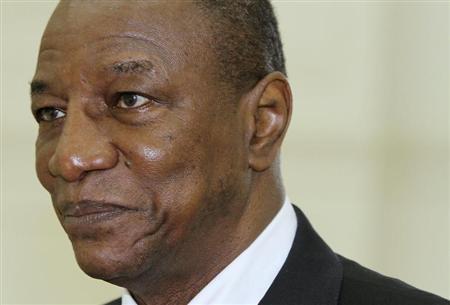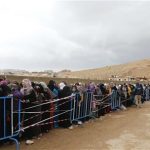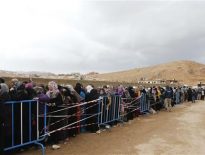(Reuters) – Guinea’s Supreme Court on Friday rejected all the complaints lodged against the result of the September 28 parliamentary election in which President Alpha Conde’s RPG party won the most seats.

The RPG took 53 seats, defeating its rivals but falling short of an absolute majority in the 114-seat parliament.
A few dozen young opposition activists gathered on a main street in the capital Conakry on Saturday to protest against the decision, a Reuters witness said. Police sources said they were quickly scattered after police arrived with batons and tear gas.
Aboubacar Sylla, a spokesman for the umbrella group of opposition parties, said they were disappointed by the result and called the Supreme Court “incompetent”.
We are asking our members to consult with their bases and come back to us on Tuesday, he said.
Before the Supreme Court ruling, the opposition threatened to resume mass street protests that turned violent in the run-up to voting, killing at least 50 people.
The parliamentary election was the last step in a tortuous return to civilian rule after a 2008 coup.
None of the complaints were supported with the necessary proof, said Mamadou Sylla, president of the court. Guinea’s main opposition parties had sought to annul the vote, while the RPG had challenged a handful of results.
The confirmed results mean Conde’s main rival, Cellou Dalein Diallo, and his UFDG party won 37 seats, while former Prime Minister Sidya Toure’s UFR secured 10 seats. Other seats were shared by 12 minor parties, and a period of coalition building is now expected.
Damantang Albert Camara, a spokesman for the government and a senior figure in the ruling party, called on all Guineans to put the interests of the country ahead of party affiliations.
Large numbers of security forces were deployed across the seaside capital ahead of the announcement of the result on Friday.
Guinea is the world’s top bauxite exporter and its vast, largely untapped iron ore reserves have drawn promises of multi-billion-dollar investments by major mining companies.
Conde came to power after a 2010 election, but the parliamentary vote had been repeatedly delayed and the political instability surrounding the election dampened some of the enthusiasm shown by investors in recent years.
In a country where the president holds much of the real power, the parliamentary poll was widely seen as a warm-up for the presidential vote in 2015, when Conde’s five-year term ends.
(Writing by David Lewis and Emma Farge; Editing by Mohammad Zargham and Janet Lawrence)





